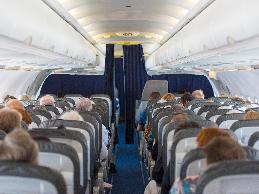On This Page
Introduction
The Job Accommodation Network (JAN) receives many questions regarding personal assistance services (PAS) from employees with disabilities and their employers. This has been a difficult issue for employees who rely on PAS because employers generally are not required to provide accommodations related to services for personal needs. Employees with disabilities therefore must try to obtain these services themselves. It can be difficult for them to hire someone to come into the office a few times a day to help with personal needs or to pay for someone to come in on a full-time basis. The end result has often been no employment or loss of employment.
Recognizing that the absence of PAS as an employment support can be a significant barrier to employment within the Federal workforce, the Equal Employment Opportunity Commission (EEOC) determined that updated regulations “were needed to enhance the employment, retention, and promotion of qualified individuals with disabilities….” On January 3, 2017, the EEOC issued updated regulations for Section 501 of the Rehabilitation Act of 1973. Section 501 prohibits federal agencies from discriminating against job applicants and employees based on disability and requires agencies to engage in affirmative action for individuals with disabilities. One of the provisions of the updated Section 501 regulations requires federal agencies to provide PAS to certain employees with disabilities. The following questions and answers discuss this requirement along with general information about PAS in both the public and private sectors.
1. What does PAS mean?
For purposes of this document, PAS means assistance with performing activities of daily living that an individual would typically perform if he or she did not have a disability, and that is not otherwise required as a reasonable accommodation, including, but not limited to, assistance with removing and putting on clothing, eating, and using the restroom. Such services do not include medical care. This definition is from the Section 501 regulations.
According to the EEOC, PAS is not the same as services that help employees perform job-related tasks, such as sign language interpreters for employees who are deaf or readers for employees who are blind or have learning disabilities. These services are already required as reasonable accommodations under the part of Section 501 that requires reasonable accommodations.
2. Are employers required to provide PAS?
Neither the Americans with Disabilities Act (ADA) nor Section 501 requires PAS as a reasonable accommodation, except when needed for work-related travel. However, effective January 3, 2018, the Section 501 regulations require federal agencies to provide PAS on the job as part of their affirmative action requirements. This requirement is in addition to existing requirements for non-discrimination and reasonable accommodation.
3. What federal employees are entitled to PAS on the job?
Only employees with targeted disabilities are entitled to PAS and then only when providing PAS (along with any accommodations that are needed) enables the employee to perform the essential functions of his or her position. The term targeted disability means a disability that is designated as a “targeted disability or health condition” on the Office of Personnel Management's Standard Form 256.
However, federal agencies as well as other employers are free to provide PAS to other employees with disabilities if they choose and many employers, both public and private, see the benefits of doing so. Typically, it does not cost much for employers to provide PAS and enables them to hire or retain qualified employees with disabilities. See question 9.
4. Where can employers find PAS providers?
In many cases, the employee who needs PAS will be able to recommend a provider. Employers may also be able to get a referral from a local center for independent living or a state vocational rehabilitation agency.
Some federal agencies, such as the EEOC, the Department of Labor, the Department of Transportation, and the Department of Justice's Civil Rights Division, already have been voluntarily providing PAS in the workplace. For federal employers who are new to providing PAS, they may be able to tap into providers used by these other agencies.
5. Who chooses the PAS provider?
The employer ultimately chooses the provider, but the Section 501 regulations state that when selecting someone who will provide personal assistance services to a single individual, federal agencies must give primary consideration to the individual's preferences to the extent permitted by law. Because of the private nature of PAS, other employers who provide PAS may want to take the same approach.
6. Can a coworker provide PAS?
Under the Section 501 regulations, the term personal assistance service provider means an employee or independent contractor whose primary job functions include provision of personal assistance services. A co-worker therefore can provide PAS if doing so is the employee’s primary job function. Otherwise, there are no specific certifications or credentials currently required for PAS providers. In general, the training or skill that a PAS provider should have will depend on the specific services needed by the employee.
7. Can the PAS provider be given other work duties?
Yes, but only to the extent that doing so does not result in failure to provide PAS in a timely manner.
8. Are teleworkers entitled to PAS?
Under the Section 501 regulations, federal agencies are required to provide PAS during work hours and for job-related travel. Work hours include time that an employee is teleworking, whether the telework is part of an agency telework program available to all employees or is being provided as a reasonable accommodation.
9. How much does PAS cost?
The cost of PAS will vary depending on the location as well as how much assistance an employee needs, but in the Section 501 regulations the EEOC indicated that PAS providers earn, on average, an amount per hour that is approximately equal to the federal minimum wage and an amount per year that is significantly lower than the annual salary of a GS-5 level employee.
10. What if providing PAS causes an undue hardship?
Federal agencies have the right to deny PAS when provision of the services would pose an undue hardship. The undue hardship standard for denying PAS is the same as for reasonable accommodations, which considers the nature, extent, and cost of an accommodation or PAS in relation to an agency's overall resources and the impact of the accommodation or PAS on the operation of the agency's business. Because the typical cost of PAS is minimal, undue hardship based on cost should rarely be an issue.
Situations and Solutions:
The following situations and solutions are real-life examples of accommodations that were made by JAN customers. Because accommodations are made on a case-by-case basis, these examples may not be effective for every workplace but give you an idea about the types of accommodations that are possible.
JAN Publications & Articles regarding Personal Assistance in the Workplace
Publications
Consultants' Corner Articles
Articles
Blog Posts
- No Blog Posts available for Personal Assistance in the Workplace






